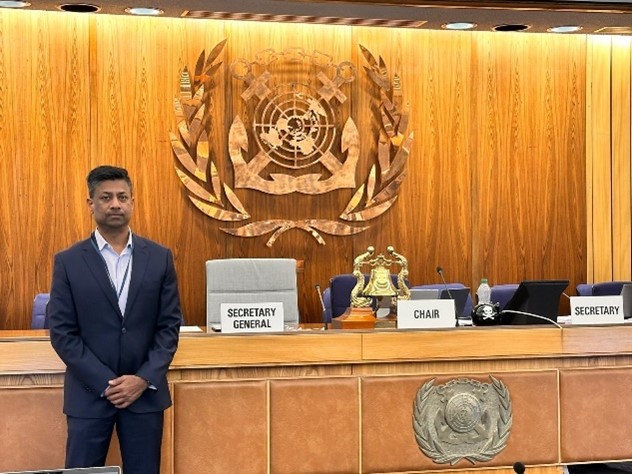
Capt. Sathya Mandravana, Director, QHSE, recently attended the 110th session of the Maritime Safety Committee at the International Maritime Organization (IMO) headquarters in London as part of a delegation from GlobalMET. GlobalMET is one of the permanent non-governmental organisations (NGOs) at the IMO.
The IMO is a United Nations agency responsible for setting global shipping regulations. It brings together 176 member states and numerous NGOs to develop international laws covering safety, environmental protection, training, and more. The Maritime Safety Committee is one of the IMO’s key technical bodies.
This session provided valuable insights into how maritime regulations are discussed and developed. It was a reminder that many of the rules followed at sea and on land are shaped in forums like this. The GlobalMET delegation also had the opportunity to meet the IMO Secretary-General, Mr Arsenio Dominguez, the MSC Chairperson, Ms Mayte Medina, and delegates from various member states and NGOs.
Key topics discussed included:
- Day of the Seafarer: The IMO launched the “My Harassment-Free Ship” campaign, featuring an interactive map to help seafarers report harassment based on their ship’s flag state.
- International Safety Management (ISM) Code: The committee confirmed the strength of the ISM Code and agreed to focus on improving its application rather than revising it.
- Machinery Space Escape Arrangements: New guidelines were approved for emergency towing on non-tank ships, and clearer rules were introduced for escape routes in machinery spaces to help prevent Port State Control (PSC) detentions.
- Cybersecurity: Work began on global standards to protect ships and ports from cyber threats, including the development of Maritime Digital Ecosystem Cybersecurity Standards (MDECSS).
- Environmental Innovation: Japan presented its “Wind Hunter” project, which uses wind power to produce green hydrogen on board. The committee is now exploring how to support such innovations through regulation.
“It was an honour to represent the maritime education and training sector and to contribute to discussions that shape the future of global shipping. The work carried out at the IMO plays a vital role in improving safety, compliance, and innovation across the industry,” said Capt. Sathya.
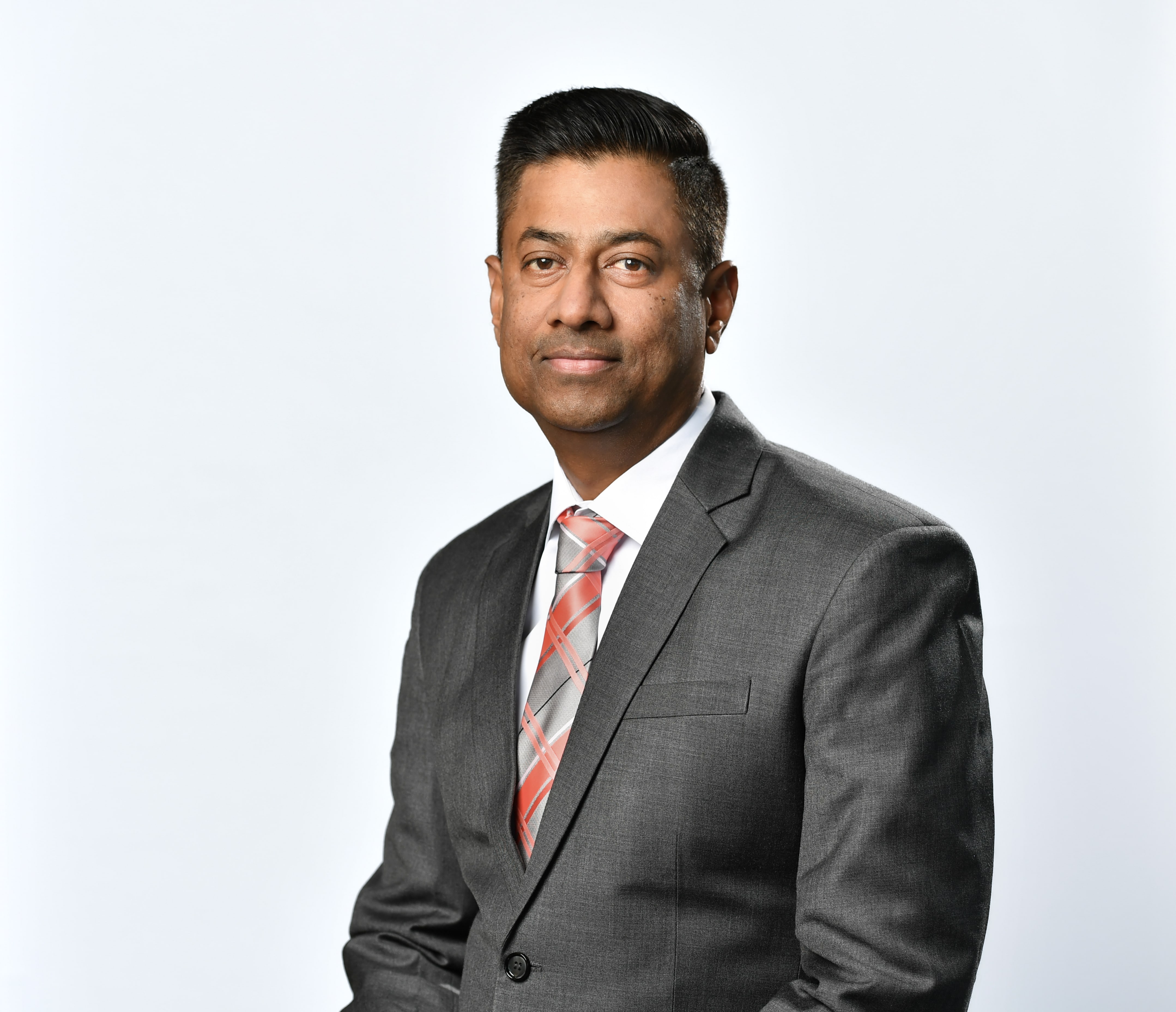
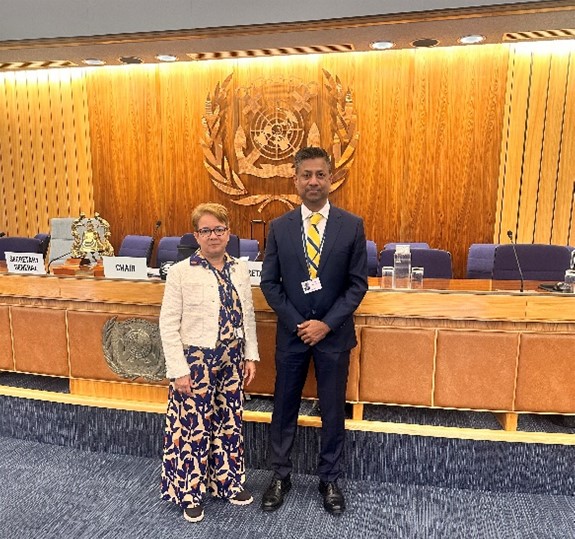
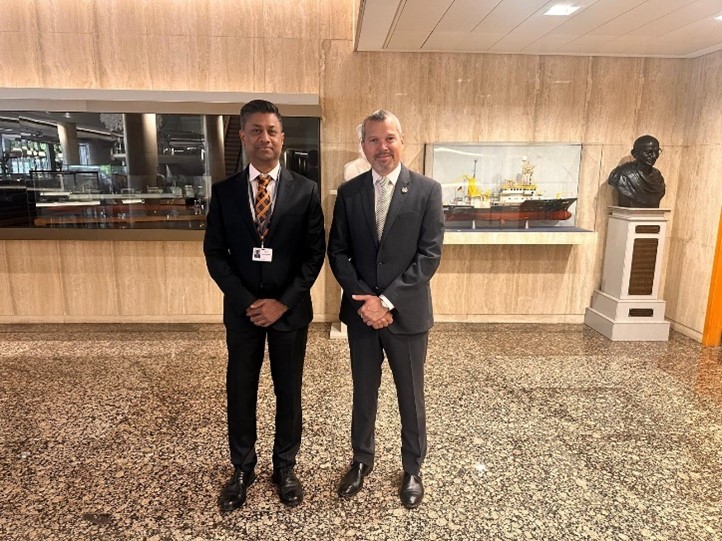
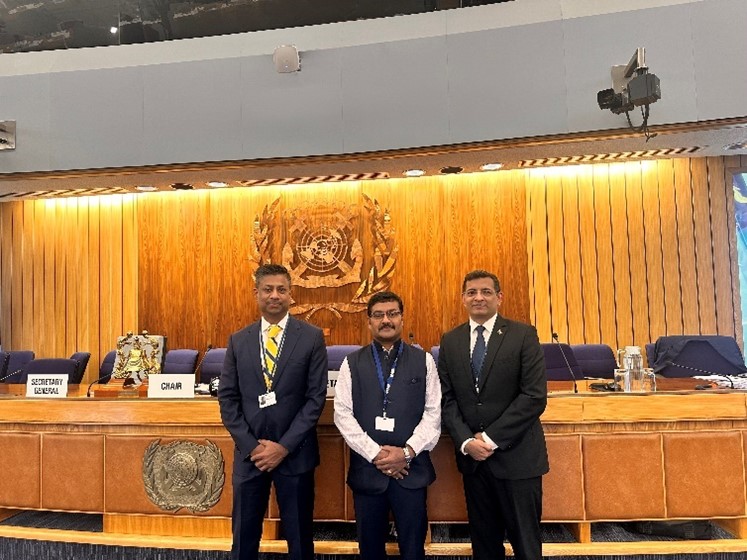
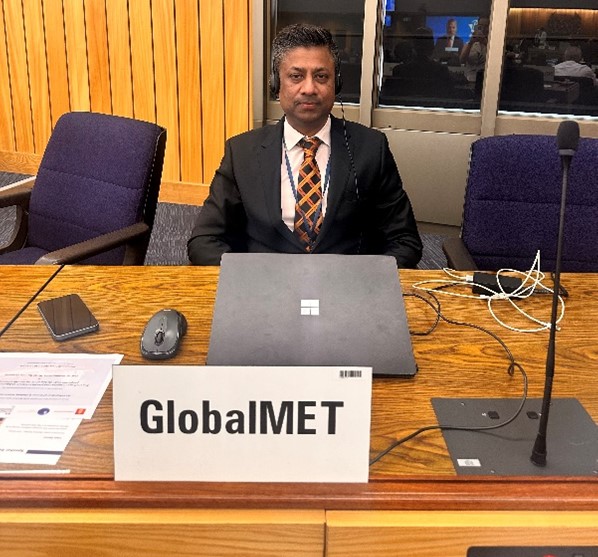
.jpeg)
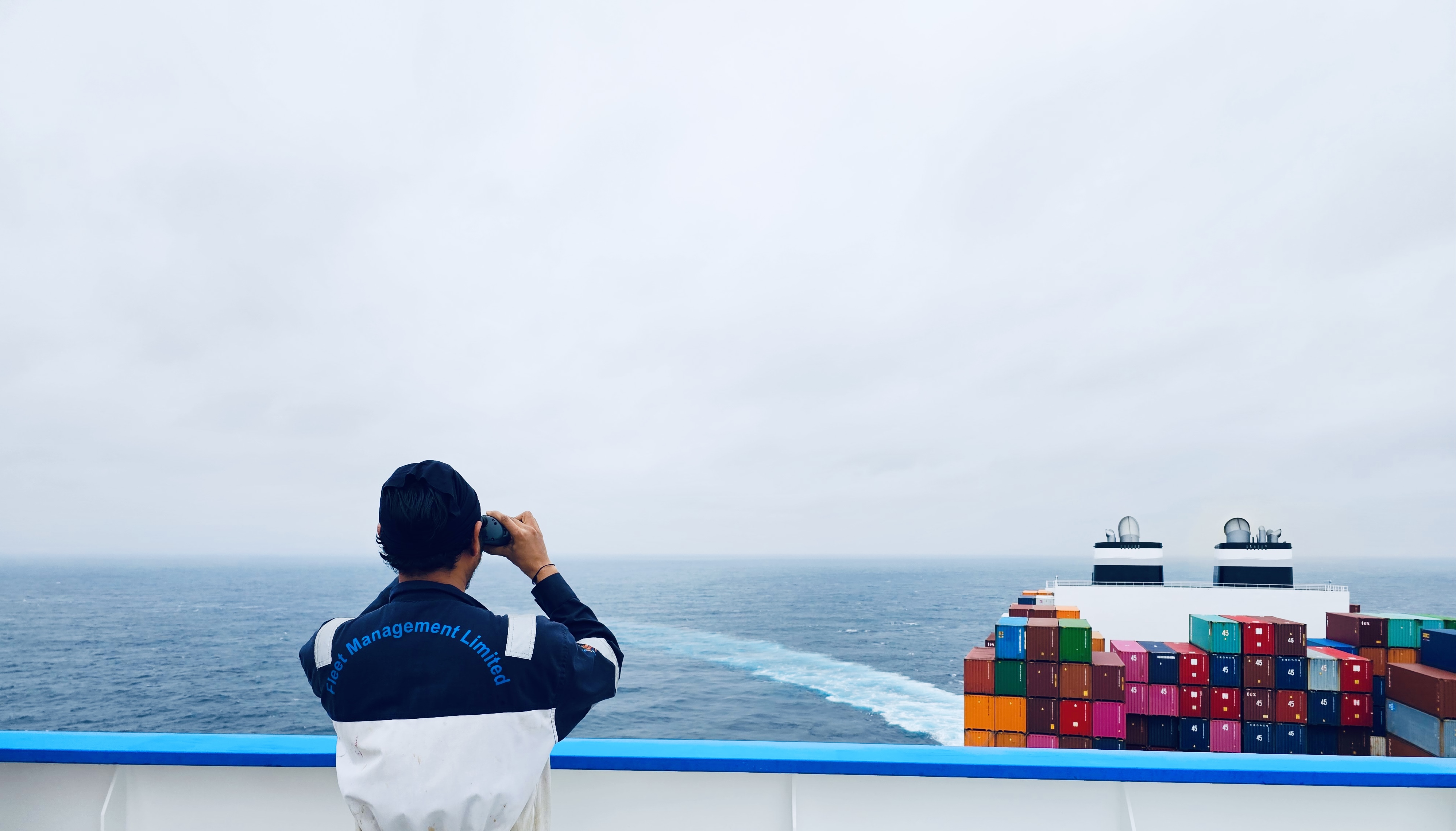
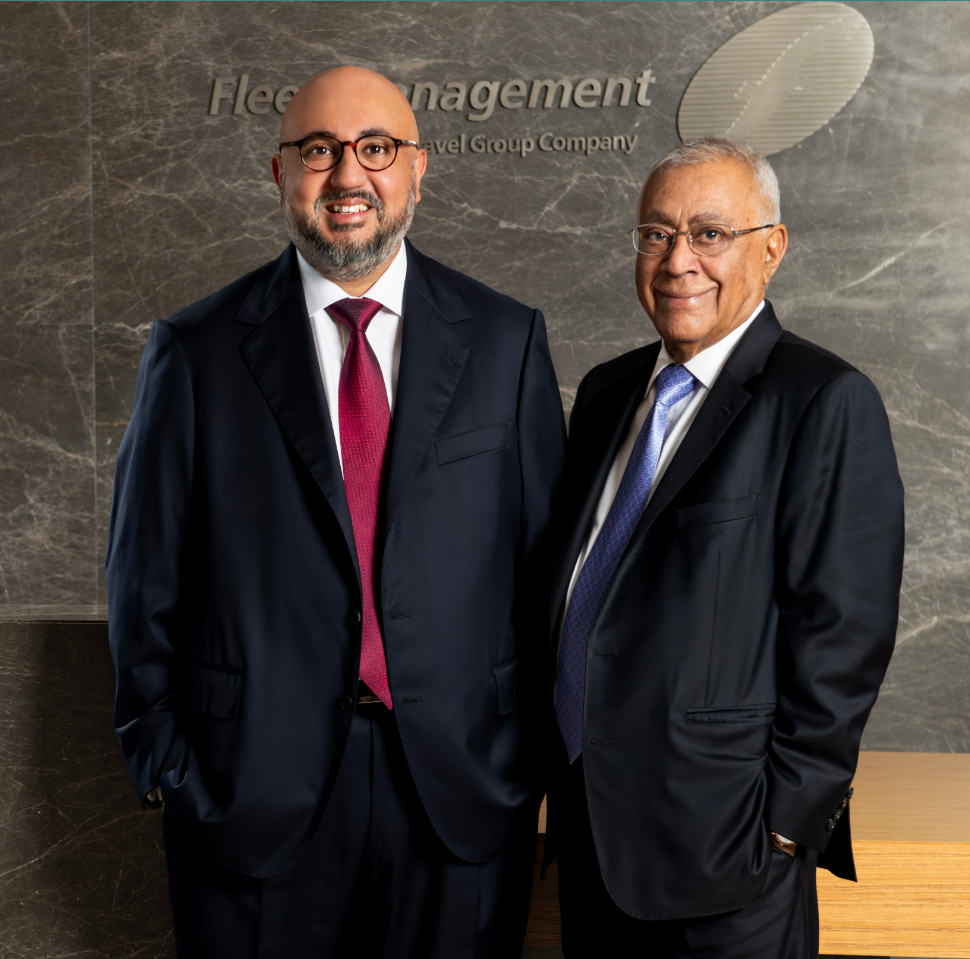
.jpg)

.svg)